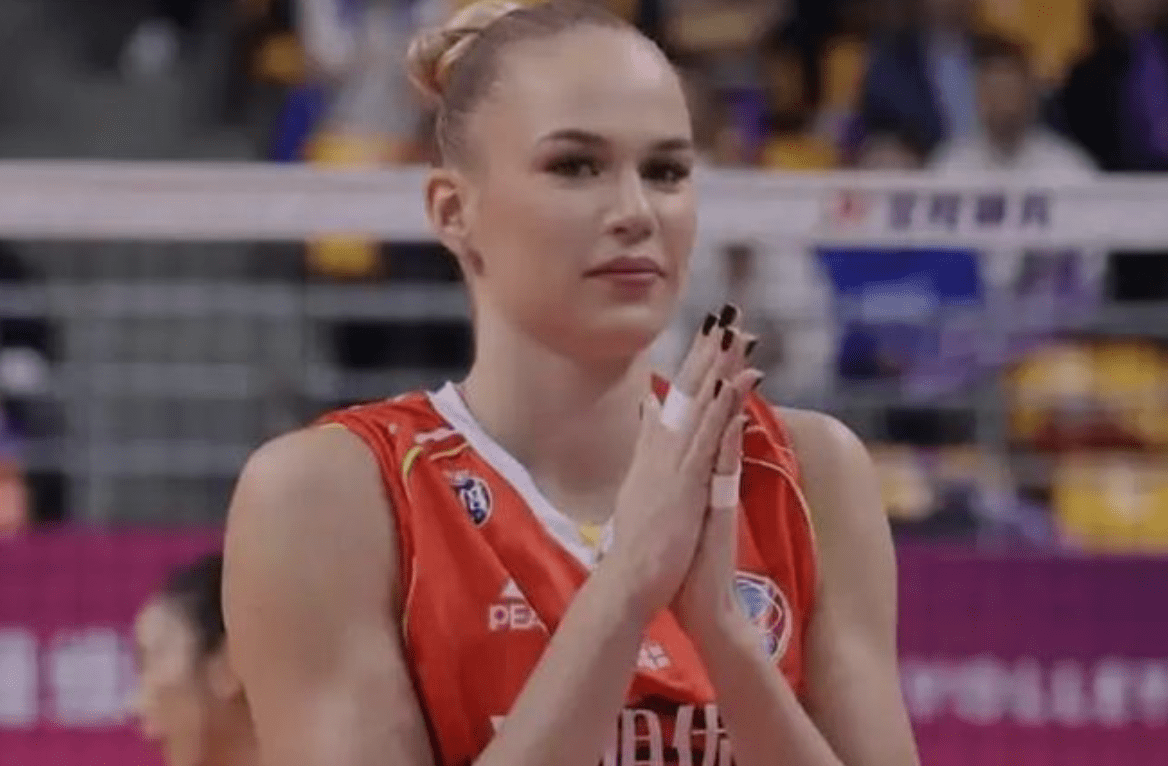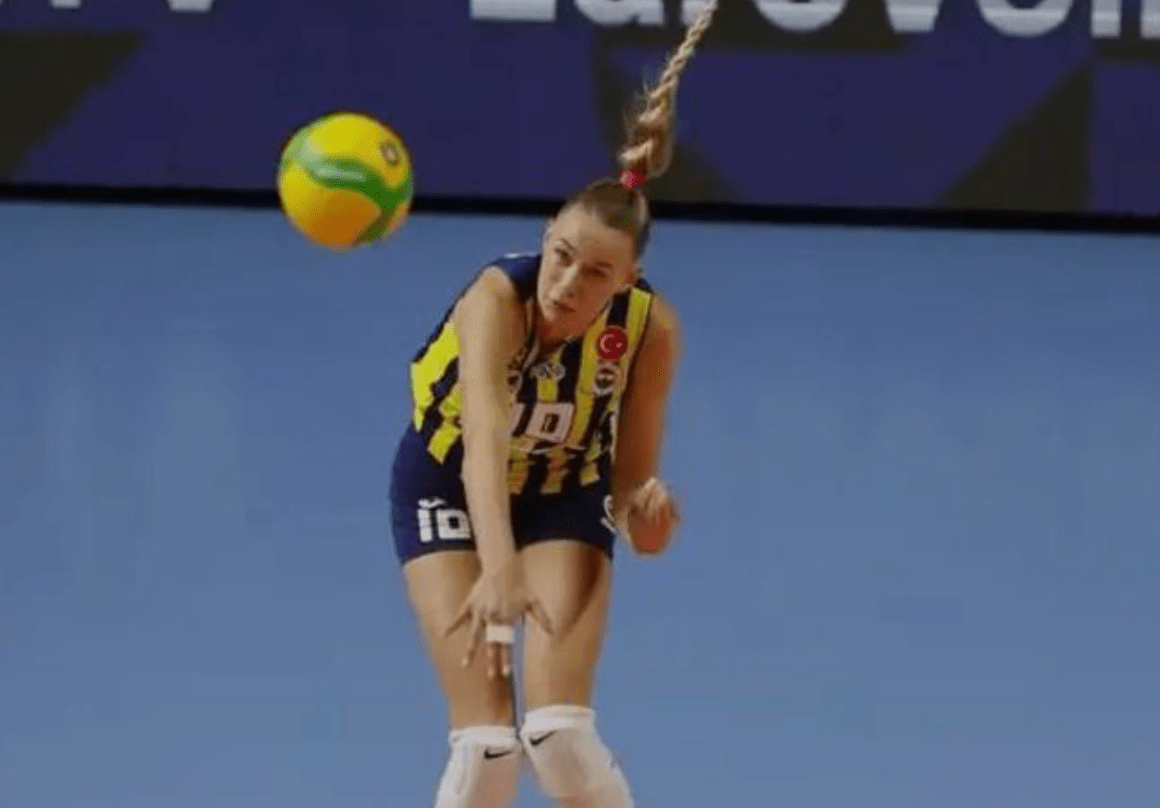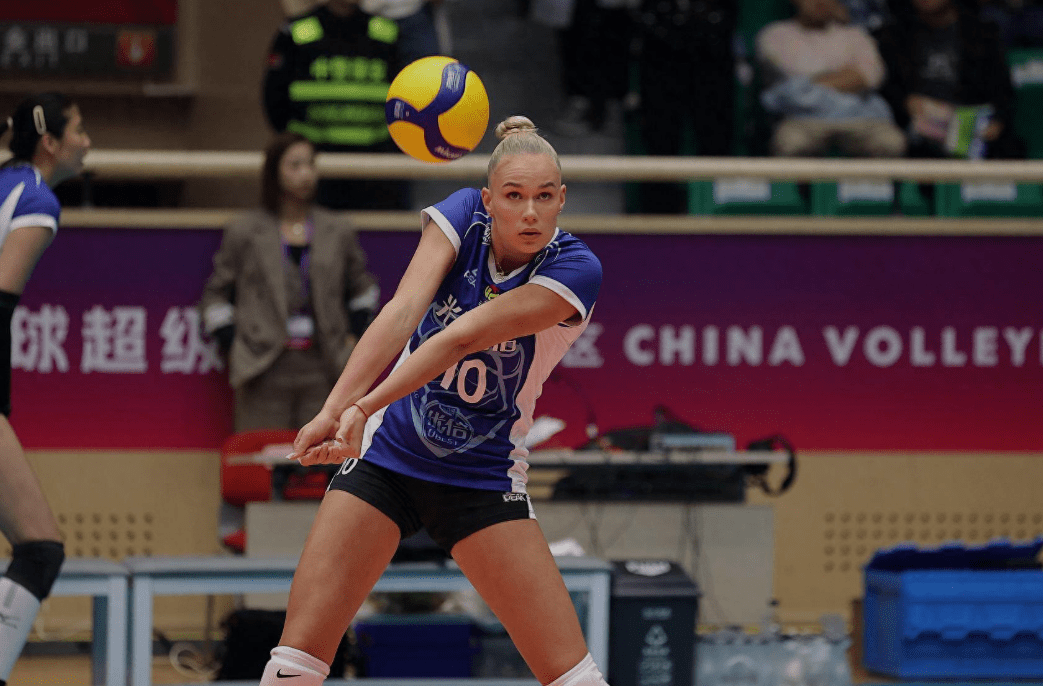Recently, the sudden departure of Shanghai Women's Volleyball Team's foreign player, Fyodorovtseva, has caused a stir in the professional volleyball world. This player, considered the core of the team, disregarded her contract and returned to Turkey to join her former team, Fenerbahçe, casting a shadow over Shanghai's season. This incident not only left fans puzzled but also raised questions about the binding force of contracts and the invulnerability of standardized management in professional sports.

To understand why Fyodorovtseva left Shanghai, we must first look at her past. The 21-year-old Russian player was already a key player for Fenerbahçe before joining Shanghai. As one of the hottest foreign players in the Turkish league, she had won numerous honors for Fenerbahçe. Her explosive power and offensive capabilities made her a rising star on the European stage.

However, this "return" is clearly not just driven by emotion. It is well-known that the Turkish volleyball league has attracted many international top players in recent years with its generous salaries, high-quality competitive environment, and strong competitive atmosphere. In contrast, although the Chinese Super League is also on the rise, it still cannot compete with the Turkish Super League in terms of salary levels or exposure. Perhaps Fyodorovtseva chose to return to Fenerbahçe because it offers a higher platform and even more economic benefits.

Nevertheless, professional sports are a realm governed by rules. Even with a better platform, breaking a contract mid-way inevitably raises doubts about her professional attitude. What other reasons might be behind this?

Shanghai Women's Volleyball Team quickly responded to the incident, accusing Fyodorovtseva of unilaterally breaking her contract. However, Fyodorovtseva also spoke out through social media, stating that leaving the team was not entirely her decision but because Shanghai did not fully fulfill the contract, especially regarding issues with the timing of salary payments.

Such accusations of "unfulfilled contracts" immediately made the situation complex. Similar situations have occurred before in the Chinese Super League. Last season, another foreign player from Shanghai left mid-season due to contract issues, which may have exposed loopholes in the club's foreign player management and contract execution. After all, as a foreign player, salary treatment and career development plans are their main concerns, and any oversight can lead to conflicts.

This situation makes one think of the saying: "Even if a deal doesn't go through, there should still be integrity; in business, one should avoid being too calculating." If Shanghai Women's Volleyball Team indeed had lapses in fulfilling the contract, then Fyodorovtseva's decision to leave seems justifiable; however, if she broke the contract solely for personal gain, it would undoubtedly cast a shadow over her professional reputation.

As the situation escalated, the International Volleyball Federation (FIVB) quickly stepped in to mediate. As the global governing body for volleyball, it clearly does not want such disputes to affect the overall image of the sport. The FIVB ultimately advised Fyodorovtseva to return to Shanghai Women's Volleyball Team and remain until the end of the season before making other arrangements.

This mediation allowed Shanghai Women's Volleyball Team to temporarily retain this key foreign player, but it also revealed the complexity of professional sports management. The personal development plans of players, the contract fulfillment of clubs, and the distribution of interests in the league intertwine to form an invisible game of strategy.

In this case, the FIVB's swift response prevented a larger conflict, but it also exposed shortcomings in the standardized management of professional sports. For example, should more detailed clauses be added during the signing phase? Can salary payments be subject to more transparent supervision? After all, prevention is always more effective than post-event remedies.
The turmoil surrounding Fyodorovtseva's departure has undoubtedly had a significant impact on the morale of Shanghai Women's Volleyball Team this season. Although the FIVB's coordination allowed her to return, her psychological state, chemistry with the team, and even the trust of her teammates have become uncertain factors.
More importantly, the competition in the Chinese Super League remains fierce. Teams like Beijing and Tianjin are formidable opponents, and how Shanghai Women's Volleyball Team adjusts after this "storm" will directly determine their chances of winning the championship.
For the team, the immediate task is not only to repair relations with Fyodorovtseva but also to make tactical adjustments. Volleyball is a team sport, and relying on a single foreign player is clearly insufficient to support the whole team.
From Fyodorovtseva's perspective, her eagerness to find a higher platform is understandable, but her breach of contract behavior can easily raise questions about her professional spirit. For a young player, professional credibility is as important as performance on the court.
For Shanghai Women's Volleyball Team, there is much to reflect upon behind the incident. In recent years, frequent foreign player contract disputes have not only affected team results but also had a negative impact on the club's image. Perhaps it is time to make more meticulous improvements in contract signing and execution.
The growth of professional sports is not just about improving competitive levels but also requires more standardized management. As the old saying goes: "Details determine success or failure." Whether it is players or clubs, doing better in the details is what will create a more stable future for professional sports.
We hope that after Fyodorovtseva's return, she can dispel controversies with her abilities; and we also hope that Shanghai Women's Volleyball Team can learn from this experience and go further in the future professional volleyball arena. "Fewer disputes, more excitement." This is what all volleyball fans truly expect.